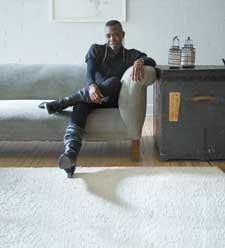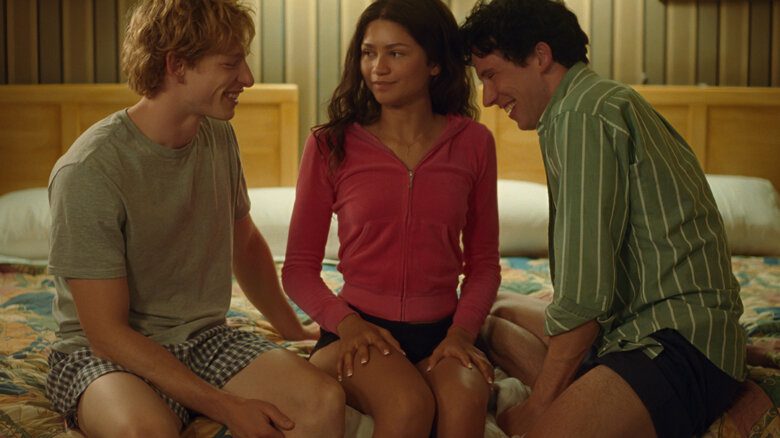You’d be hard-pressed to find an artist more prolific and hardworking than d’bi young. The 32-year-old Jamaican-born, Toronto-based, queer dub poet, writer and performer has recorded four albums, published two books, contributed to numerous compilations, written half a dozen plays, won two Dora Awards and performed on stages across the Americas and Europe. She is the founder and artistic director of anitAFRIKA! Dub Theatre, a company that teaches dub poetry to youth, and has taught and lectured internationally.
Currently on a yearlong performance tour that is taking her across Canada and to Ecuador, Belize and England, young is doing her best to balance her many projects with life as the single mother of two young children. So how exactly does she manage it all?
“I don’t know!” she laughs, on the phone from Montreal, where she’s performing. “Some days I’ll have three or four hours before rehearsal that I plan to use working on lines or something. But you know, I’ll spend the whole time making food and changing diapers.”
This month will see the long overdue Ottawa premiere of young’s Dora award–winning solo show blood.claat at the Great Canadian Theatre Company. A coming-of-age story set in young’s hometown of Kingston, Jamaica, the show looks at the life of 15-year-old Mudgu Sankofa as she learns the power of blood and its role in both giving and taking life. In addition to Mudgu, the show features her cleanliness-obsessed granny, a machete-wielding stranger, her reggae-loving boyfriend and her church-going auntie.
“Blood claat” (a Jamaican patois pronunciation of blood cloth) is literally the cloth that women use to collect menstrual blood. It is also one of the strongest curse words in Jamaica, the closest equivalent to “motherfucker.” The play examines the relationship between culture, blood and women’s bodies. Young plays all the characters in the show and moves seamlessly between them, using a deceptively simple collection of bed sheets, hats and bags to transform herself.
Most of young’s works are solo shows that she writes and performs herself, a brand of theatre she calls “biomyth-monodrama.” “Biomyth is a form of creation where the author uses biographical information as a starting point and then employs poetic licence to broaden or deepen it,” she says. “Monodrama is about combining the traditions of dub poetry and theatre that I came out of.”
An important part of the equation is providing a talkback after the work is presented.
“I’m learning that I can’t present provocative subject matter and expect my audience to go home and be okay,” she says. “There has to be a process where we can dialogue about the work. A storyteller is there, first and foremost, for the transformation of the community, and they must be responsible to the people who will allow them to be on stage.”
Her work is obviously personal. So personal, in fact, that it is often read as a literal retelling of her life experiences.
“My personal life is the catalyst for my work because the story I am going to tell has to be rooted in some kind of truth,” she says. “I don’t write autobiographies, but I also try not to write about things I don’t know about. I know about myself, my family, the many intersecting communities that I participate in, and so I use those things as my starting points.”
With all the different forms she works in, young still defines herself first and foremost as a storyteller.
“For me, being a storyteller is about having integrity,” she says. “If I’m not living my truth and being honest in my life, my work will be coloured with that energy. It’s not a job you can separate yourself from. It’s something you have to live every day.”
The equation seems to be working for her, if only because of the numerous opportunities she has for creating and presenting her work.
“I absolutely can’t complain about not getting to do my work,” she says. “That’s a major issue for a lot of other artists, and I have a huge amount of privilege simply in that my voice is able to be heard.”
She stresses that privilege also comes with a hefty side order of responsibility.
“I have to be accountable to the people who are putting me on stage and listening to the things I’m saying,” she says. “It’s not just about the work, but about the person that I am and the choices I make in my life.”
Being able to meld her life as a mother and her life as an artist has always been challenging, though young seems relatively unfazed by it.
“If you look at the history of our communities, women were back working on the plantations with the child strapped to their back as soon as it was possible,” she says. “I don’t think what I’m doing is that crazy or that special. It’s not that different from what we’ve always done.”


 Why you can trust Xtra
Why you can trust Xtra


